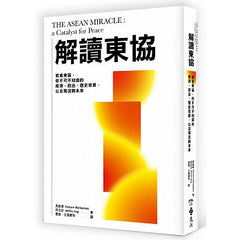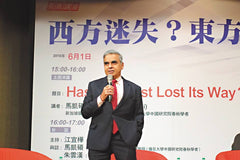The ASEAN Miracle resonates in Taiwan June 5, 2018 11:28


The ASEAN Miracle by Kishore Mahbubani and Jeffery Sng has so far been translated into 10 languages, and published in different editions around the world. But the biggest impact of the book (as measured in sales per capita) has been in Taiwan, where the complex Chinese character edition from Yuan-Liou Publishing has sold more than 6000 copies, only slightly less than the global English edition from NUS Press. Why does the story of the success of the ten members of the Association of South East Asian Nations, and their position in the new geopolitical world, resonate so well in Taiwan?
It may reflect the way Taiwan is attempting to rebalance its human, educational and business and investment relations away from the mainland to Southeast Asia. President Tsai Ing-Wen's New Southbound Policy (NSP, 新南向政策) has boosted trade with Southeast Asia and led to a spike in Southeast Asian students coming to study in Taiwan. While it's unlikely Southeast Asia can provide a long term alternative to the draw of the mainland for Taiwanese talent, investment and cultural identification, a greater interest in Southeast Asia is surely a healthy thing.

(photo courtesy the Fair Wind Foundation)
On a recent trip to Taiwan, to participate in a two day conference, “From the Western-Centric to a Post-Western World: In Search of an Emerging Global Order in the 21st Century”, Prof Mahbubani drew on examples from The ASEAN Miracle to show how the US and Europe need to adjust their strategies in Asia. For example: he proposes that moralistic stances and interventions may not be effective. ASEAN was able to build trust with Myanmar and push for a political opening, through a long-term policy of engagement, while resisting European calls to reject Myanmar.
Equally, the Western powers can be more practical and realist in their approach, and here he points to the failure of European countries to deal adequately with rising tensions and demographic pressures in North Africa and the Middle East, tensions which inevitably would spill over into Europe. And this may point to a second reason for the interest in Professor Mahbubani's book in Taiwan: that it embodies a critique of the behavior of the Western powers, and a focus on the interests of Southeast Asian and Asians more broadly.
